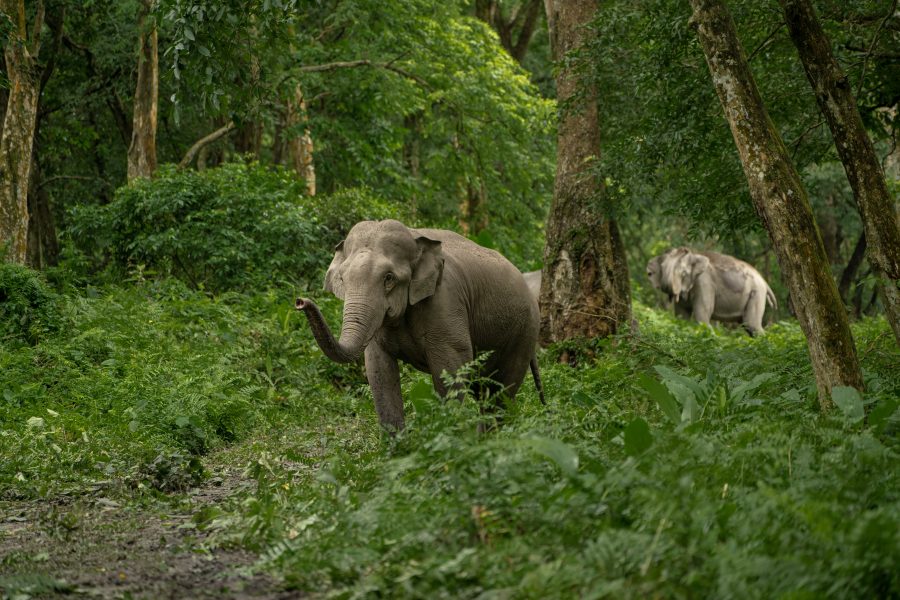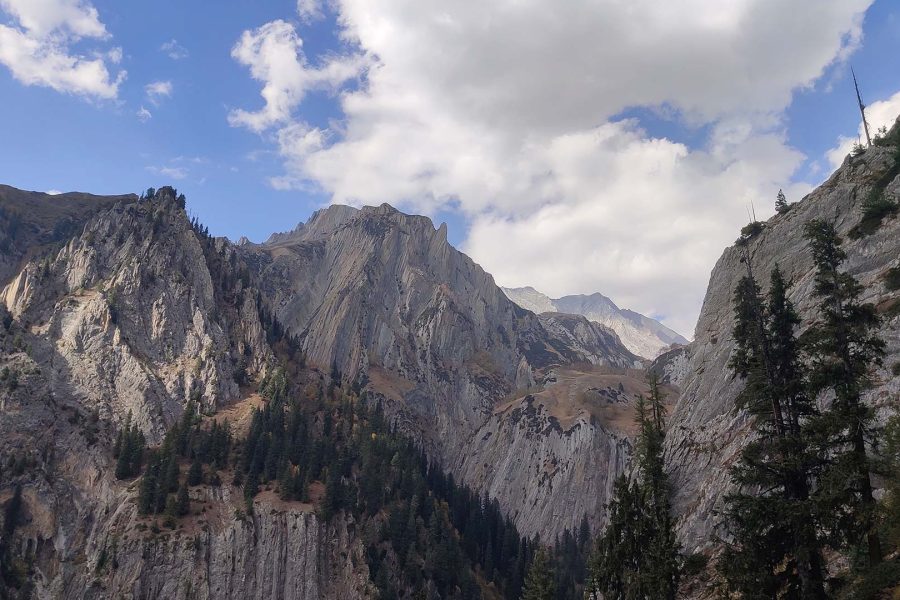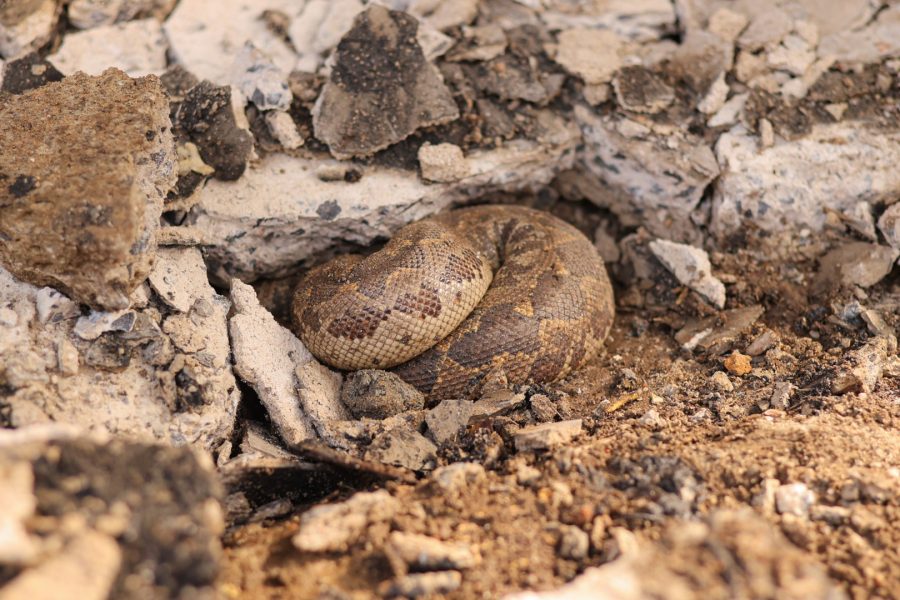The Wildlife SOS Moon Bear Conservation Project in Kashmir today works on conflict mitigation to help prevent bear human conflict in the mountainous state of Jammu and Kashmir. The project started in response to a shocking incident that occurred a few years ago and something that many of you may recall…. A Moon Bear (Asiatic Black Bear) accidentally strayed into a village. The frightened villagers egged on by a few bad elements turned viciously on the bear and attacked it. When the bear was injured, they set it on fire and the bear burnt to death! This brutal act was captured on video and aired by News channels. Thousands of people viewed this and appealed to Wildlife SOS to intervene.
When Wildlife SOS learned of the increasing man animal conflict in the area, we decided to intervene and create awareness about bears while establishing an orphanage and a rehabilitation center for black bears in collaboration with the Jammu and Kashmir Wildlife Protection Department. The bears needed urgent attention to help save the wild population and make people be more tolerant towards the species. Geeta Seshamani, co-founder of Wildlife SOS reflects, “We were deeply concerned that these reports were becoming more and more frequent and we knew that these kinds of conflicts were completely preventable if we could use a combination of awareness, education and some hands on solutions.
Wildlife SOS was determined to do something to help mitigate and address the increasing conflict and launched a program to bring in some intervention. Today, Wildlife SOS is focused on educating students and people in Jammu and Kashmir to understand the ecological role the bears and other wildlife play in nature and also increase tolerance and appreciate wildlife around them. At the same time, Wildlife SOS team member Ms. Aliya Mir is educating the local communities to learn preventive solutions to reduce the conflict such as “Bear avoidance behaviorâ€. She says The key was to teach these people avoidance behavior and the program uses several approaches to achieve these goals to reduce bear human conflict.
Recently, Wildlife SOS hosted several art contests for students. Wildlife SOS team member and Biologist Tahir Gazanfar, who organized the event in conjunction with the Department of Wildlife Protection, was thrilled to see the enthusiasm and creativity exhibited by the students who participated. He stated, It was a very rewarding experience to see all the unique pieces of art created by the students, all submissions expressed a deep love for the surrounding environment.
Another recent event hosted by Wildlife SOS was, a five kilometer long Green March held on the banks of the world famous Dal Lake in Srinagar. Despite the day being extremely cold, over 200 students and volunteers participated in the march holding signs to save the environment and chanting, “Ann poshi teli yeli wan poshi.†This is a famous old Kashmiri maxim which translates to, “Food is subservient to forests.†Tahir commented, “I was pleasantly surprised to see the huge turnout of young people at the Green March especially since it was freezing. I expected people would stay home. However, people came out in droves and we had a higher than expected turnout.
One of the ways Wildlife SOS is having a direct impact on helping to prevent human bear conflict situations are by working with communities in areas surrounded by apple orchards that border the forest areas and moon bear habitats. The bears are attracted by the apples and accidents occur when the owners or workers at the apple orchards run into a bear or surprise a bear. Wildlife SOS trains the community using cartoons, drawings, etc on methods to deter bears from their orchards and educates them on how to coexist with bears peacefully. This personal approach is having a positive impact on encouraging the local communities to tolerate the presence of the bears.
Geeta Seshamani is optimistic, “We have a long way to go to reach the point where people are able to live harmoniously with bears. However, there is hope that we will have a less contentious relationship with the bears and that in the future we will be able to happily coexist.”





